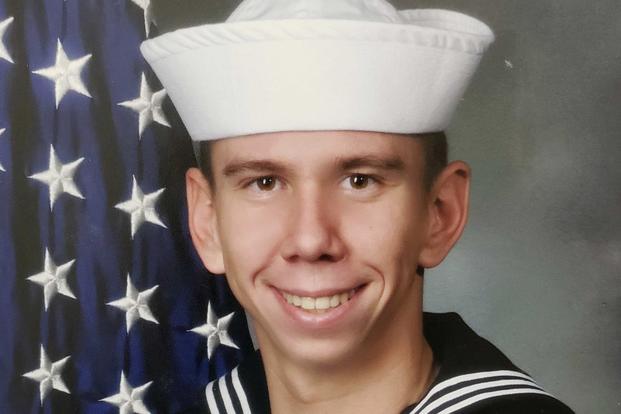The Navy and Marine Corps unveiled new measures Tuesday intended to improve service members' access to mental health treatment by allowing them to confidentially request a referral from their supervisor or commanding officer at any time without repercussions.
Navy Secretary Carlos Del Toro issued a message to the services implementing what's known as the Brandon Act. Named for a Navy sailor who died by suicide in 2018, the new policy allows members to "seek help confidentially for any reason, at any time and in any environment, thereby reducing the stigma associated with seeking mental health treatment," according to Del Toro.
Brandon Caserta, a 21-year-old aircrew aviation electrician's mate assigned to Helicopter Sea Combat Squadron 28 in Norfolk, Virginia, died by suicide on June 25, 2018. According to his parents and a subsequent command investigation into his death, Caserta had been bullied by a supervisor and his command did little to stop the abuse while also actively working to prevent him from transferring to another unit.
Read Next: Iraq Vet Stole Humvee Before Smashing it into Building at Fort Stewart, Prosecutors Say
Under the new Del Toro directive, commanders must make sure that sailors and Marines know how to ask for a mental health evaluation, ensure that those who ask can get an evaluation as soon as practical, and treat a mental health evaluation referral like any referral for a physical health condition.
The policy, "Self-Initiated Referral Process for Mental Health Evaluations of Service Members," calls for annual training on service members' rights to request a mental health evaluation and requires commanders to maintain privacy by not asking providers to share the results of the mental health examination except in cases spelled out in Defense Department Instruction 6490.08.
Those exceptions include if a service member is at risk for harm to themselves, others or the mission; needs inpatient care or substance abuse treatment; has an acute medical condition that interferes with duty; or in cases where the service member was required by the command to get a mental health evaluation, in addition to other special circumstances.
"Our ability to maintain naval superiority requires leaders who create psychologically safe environments, team members who promote each others' well-being and the personal self-awareness to know when we need increased support," Del Toro wrote in ALNAV 054/23.
The policy also applies to the Marine Corps.
At the urging of Caserta's parents, father Patrick Caserta, a retired Navy senior chief, and mother Teri Caserta, Congress passed a law in late 2021 requiring the services to implement a policy that would allow service members to request a mental health appointment at any time and receive an immediate response.
The Defense Department did not craft the policy in response to the law until this May; in the interim, 440 active-duty service members across the six armed forces died by suicide, according to records kept by the DoD and the Coast Guard.
While it's not known how many of those troops suffered from mental health conditions, Patrick Caserta said in a statement released Monday by the League of United Latin American Citizens that the new policy allows all members to get help.
"Every active and veteran service member can now have the help they need and do not have to suffer alone; instead, they can reach out and get medical support," Caserta said.
Under the DoD directive issued in May, the services were to implement the policy within 45 days for active-duty members and then work to implement the policy for National Guard and reserve members.
Del Toro noted that service members do not need to wait for a referral for a mental health evaluation and can seek mental health treatment at their military medical facility at any time. They also have access to non-medical counseling or therapy from Fleet and Family Support Centers, Marine Corps Community Services, chaplains, and military and family life counselors.
"Sailors and Marines are empowered and encouraged to directly seek mental health services as desired from any of these resources," Del Toro wrote.
In a press release accompanying the message Wednesday, Capt. Christine O'Connell, acting director of the Navy's Office of Force Resiliency, encouraged sailors to seek support if they are facing challenges, calling it a "sign of strength."
"It requires courage, vulnerability, and a deep understanding of our own humanity. It is a powerful act that fosters connection and ultimately propels us toward personal and collective growth," O'Connell said.
-- Patricia Kime can be reached at Patricia.Kime@Military.com. Follow her on Twitter and Threads @patriciakime.
Related: Navy Facing Another Suicide Cluster as Lawmaker Says Key Reforms Haven't Been Implemented













